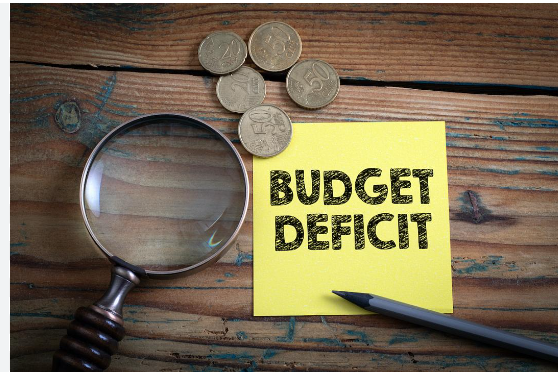December budget deficit was announced yesterday. The deficit was realized as 843 billion TRY in December. Thus, the total budget deficit for 2023 rose to 1.38 trillion TL. However, the cash budget deficit for 2023 announced a week ago is even lower than the December deficit: 626 billion TL. Interesting things are happening in Turkey. Same budget, one cash budget deficit and one budget deficit. But there is a huge difference between them.
First, looking at the 2006-2023 period, the budget deficit was at most 1.26 times the cash budget deficit. In 2023, it is exactly 2.2 times (shown in the graph). This is a strange situation. Of course there is an explanation; I don’t know, for example, the payment of the earthquake expenditures was delayed until 2024. But it makes one wonder why such a delay was necessary. Experts will of course explain the reason for such a high difference. But sooner or later the deficit on paper will turn into a cash deficit; it should be noted.
Second, there is a budget deficit of around 5.5 percent relative to the 2023 projected GDP. Some of it is due to the earthquake expenditures that have to be made. If you have a proper economic program, you should already be aiming for a low deficit, maybe a little surplus excluding earthquake expenditures, if not for 2024, then for 2025-2026. But we know that there is another reason for this deficit: The lavish spending before the elections, or new practices that will force you to increase spending in the future – for example, the EYT system.
Third, the deficit that emerges when interest expenditures are excluded – the primary deficit – is very important. If you remember, one of the main reasons for our rapid recovery after the 2001 crisis was that we had consecutive primary budget surpluses to reduce high public debt and high risk premium. This kind of fiscal policy is almost a sine qua non of a stabilization program. In the 2000-2022 period, we ran primary deficits three times, as a percentage of GDP (%): 2019: 0.57; 2020: 0.82; 2021: 0.28. 2020 and 2021 are COVID times; it is natural for the budget to deteriorate. The primary deficit in 2023 is about 2.8 percent of GDP – too high.
Fourth, the budget deficit to GDP ratio would have been much higher if some decisions to reduce the budget deficit had not been taken after the election within the framework of what the authorities call the ‘return to rationality’ program. On the positive side, tax rates were raised. On the negative side, there are the following factors: The burden of TL-denominated currency-protected deposits on the budget was transferred to the Central Bank. Since there was no front-loaded interest rate hike in June, the exchange rate and inflation jumped. Inflation tax increased. The increase in tax rates was mostly in indirect taxes.
